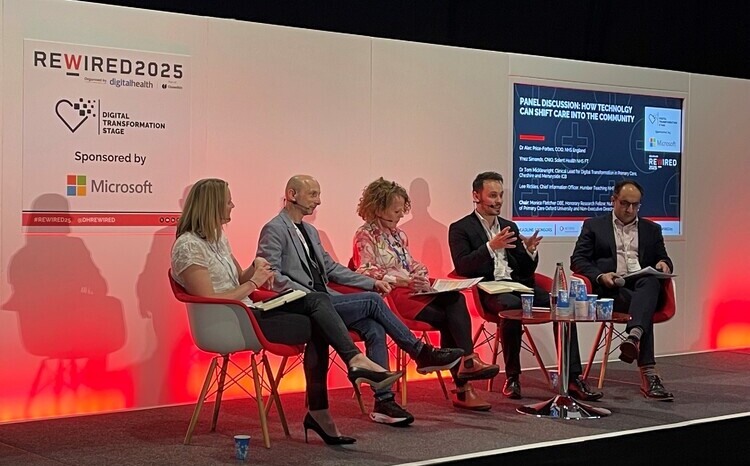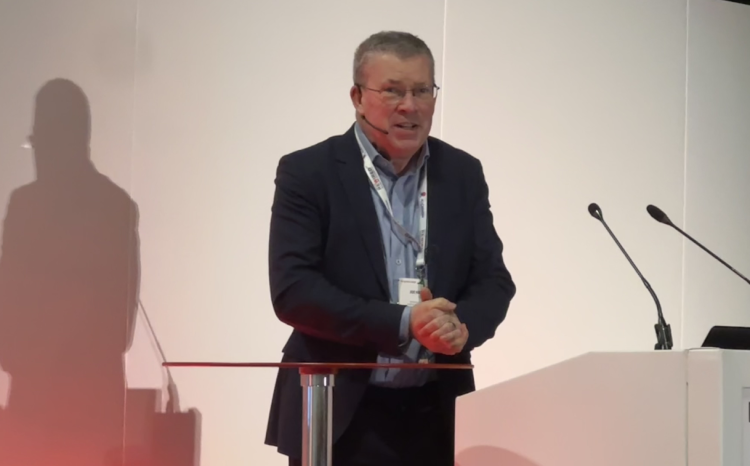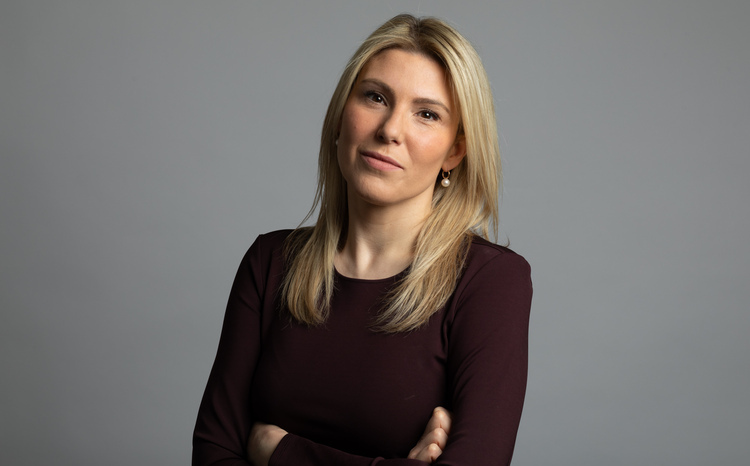Free NHS App to be available to all ‘by December’ following beta tests

The NHS app, which aims to give patients safe and secure access to their GP record, will be available to all by December 2018, the Department of Health and Social Care has said.
The free app can be used to make GP appointments, order repeat prescriptions, help manage long-term conditions and access 111 online.
Patients can also use the app to state their preferences relating to data-sharing, organ donation and end-of-life care.
Juliet Bauer, chief digital officer at NHS England, said: “With more people than ever seeking to access information online or via apps, the NHS is raising its game on digital health technology.
“The new app will put the NHS into the pocket of everyone in England, providing secure access to trusted health information, your medical record, repeat prescriptions and GP appointments.
“We are empowering people to take control of their own healthcare and this app is just one step along the road, we are also developing an NHS Apps Library and putting free NHS wifi in GP surgeries and hospitals.”
Developed by NHS Digital and NHS England, the app will begin a beta testing phase in September 2018.
It will be available through the App Store or Google Play and once downloaded, users can sign up for an NHS account (see video demonstration below).
https://twitter.com/DHSCmedia/status/1013699993352302592
NHS Digital’s chief executive, Sarah Wilkinson, said: “We are working hard to deliver the Secretary of State’s vision for an NHS App which provides much easier access for individuals to key NHS services.
“I have no doubt that people will hugely welcome the ability to access self-help diagnostic tools, more easily book GP appointments, view test results and order repeat prescriptions, and tell us about their personal preferences with respect to organ donation, use of their data and other aspects of their care.
“We all know that demand for precious NHS services is escalating, and for a large portion of the population digital channels are a preferred means of access to data and services, so this is an opportunity to provide the easier access people want and relieve some burden from front-line providers.”
Health and Social Care Secretary, Jeremy Hunt, said the app was a “world-first,” which he said put “patients firmly in the driving seat and revolutionise the way we access health services”.
He added: “I want this innovation to mark the death-knell of the 8am scramble for GP appointments that infuriates so many patients.
“Technology has transformed everyday life when it comes to banking, travel and shopping. Health matters much more to all of us, and the prize of that same digital revolution in healthcare isn’t just convenience but lives improved, extended and saved.”
Hunt promised the NHS app at an NHS Expo event in September 2017, saying that every patient in England should be able to use an app to access their medical records and book a GP appointment by the end of 2018.
The NHS App has been welcomed though have argued that security must be a priority.
Helen Stokes-Lampard, chair of the Royal College of GPs, said: “Adequate safeguards must be in place to ensure the utmost protection of patients’ personal data, and considering that patient’s medical history will be accessible on individual’s mobile phones on the apps, we need to ensure that the security and reliability of the identity verification processes being used are of the highest international security standards.
“As with any scheme it must also be rigorously independently evaluated to ensure it is safe and cost-effective for the NHS and that is beneficial to both patients and practices and that it does not add a further burden of workload pressures to already overstretched GPs and their teams.”





14 Comments
The problem with system/ supplier based apps, will be the same as locality based apps. Either you have one central app that offers all the services, or we will create a market for aggregator apps like Hotels .com so you can link all your different app. GP Acute Hosp, eRS, Patient Portal, etc. It should make sense when more than just GPs is integrated with it… (Roadmap?)
Separately it is disappointing that the Secretary of state thinks that primary care capacity issues will be overcome by an app. I can only imagine it making the situation worse as people find it much easier to book an appt for a snuffle.
New systems introduced by the NHS are always promoted as being of wonderful benefit to clinicians and/or patients. In reality they are designed for, and intended for the benefit of NHS data harvesting aspirations. It seems fairly clear that this app is redundant from the point of view of those t is supposed to benefit, so the obvious question is, what data is it covertly collecting, for whom? Does anyone have any insight into this latest piece of deviousness to emanate from the unlovely partnership of the Secretary of Stae and NHS England, the Department of Obfuscation and Duplicity?
It would be really nice if the NHS would use their scarce resources for healthcare, rather than for the purpose of stimulating the digital econmy. How about the NHS supporting a health strategy rather than supporting the national industrial strategy in order to “maintain growth through the uncertainties of the Brexit period”. There are a lot of patients out there who want healthcare, not digital toys. Patients want to be treated as human beings rather than being processed as though they were merely data. The NHS is moving towards becoming the National Data Service.
Much of this functionality is already available through existing GP systems. However in my experience it is not possible to book urgent appointments through them, these still require the patient to call at 08:00 for a morning appointment or 14:00 for the afternoon.
I am intrigued as to how it is thought that this app will change the way in which appointment systems work.
Kiss your PFS apps good bye. All hail the NHS app.
Dear NHS Digital, Here is a wheel (insert name of numerous Apps that already do this), please reinvent it or alternatively please do something useful like deliver on GP Connect
Given the plethora of communication available channels to everyone else on the planet, wasn’t NHS Digital aware of the 3 year GPFYFV £45 Million funding programme that started doling out money last year to procure the same thing. I’m struggling to spot the difference between this offering and the 15 approved Online Consultation solutions on the DPS.
@Nelly the Elly – great response!!!!
Turns out GP Connect isn’t going to deliver what you and I think it will…it’s been morphed into something for CCGs and Federations to commission (it’s not for patient facing stuff) based on the last output I saw.
The phrase you now need to use is: GP Futures!!!
Yep, it’s so so so far in the future that it’s been renamed FUTURES and yes I believe it probably still is just sketches on the back of an envelope
Could we confirm what the authentication method will be (Citizen ID?: https://www.digitalhealth.net/2018/05/first-citizen-identity-services-to-appear-within-weeks-says-nhs-england-cdo/) .
GP system suppliers already provide this type of app services: EMIS Patient Access…: https://patient.emisaccess.co.uk/account/login?ReturnUrl=%2F, will the new NHS app provides at least the same functionality from day 1 to give an incentive to switch to the NHS App?
And above all… what validation will be done to make sure that the information provided in both (multiple apps) is consistent between platforms…
Why is no oneasking why they built this when there’s a myriad of apps out there that do almost all of this? Good use of tax payer money.
Or is the end of GPSOC third party apps?
This is all extremely exciting – however it will only be revolutionary if the majority of GPs open their systems so that, for example, ideally all – or at least most – appointments are available for booking online. Even though my surgery admits that DNAs for online bookings are much lower than from other sources (and will doubtless be even lower if the NHS App includes a reminder), they prefer to triage via phone or personal visit before accepting appointments.
Well may be they should change their approach, let patient book appointment and give a reason for their appointment, may be even let them upload photos and videos, then have the receptionists or practice nurse or the GP can look through the appointments lists and see if they can triage cases over the phone or video link or even by email.
Those that asked were probably treated the same as the Junior Doctors were a few years ago…
What is often not understood is the active role well-trained practice receptionists have in prioritising scarce appointments so that on the day appointments are filled with truly urgent stuff. (For example, in the smaller practices, receptionists often know most of the patients well, and can also be on the alert to that reticent elderly man who hardly ever complains but now has ‘a bit of chest pain, but I don’t want to make a fuss’ and ensure they are fitted in urgently (for their all-too-possible coronary).
If we make all appointments directly bookable by the patient (and have far too few GPs and nurses to deal with them) then all we will get will be faster chaos with little evidence of treating the potentially important cases first.
Comments are closed.